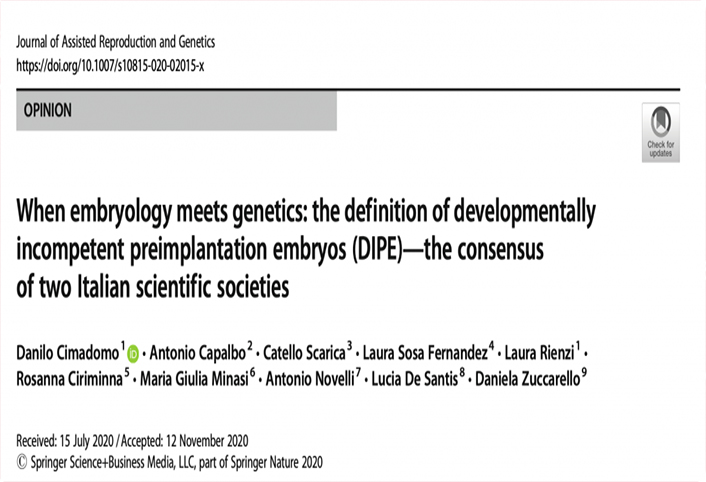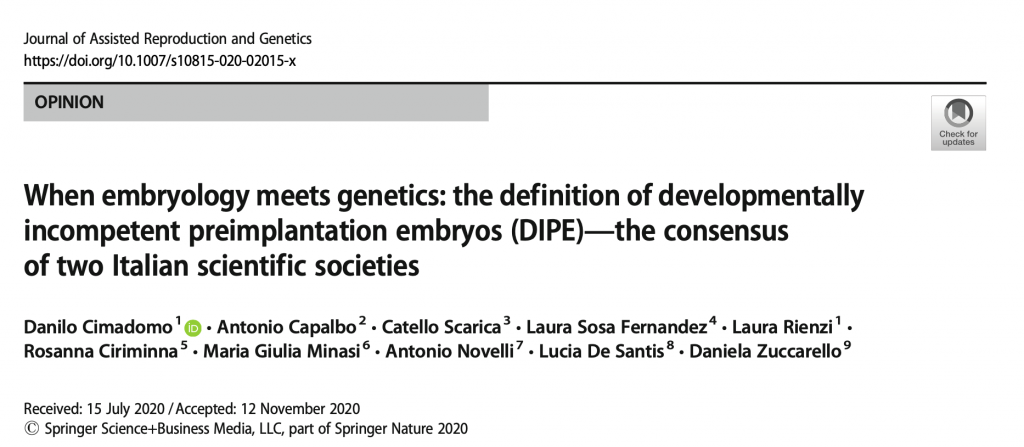
Danilo Cimadomo, Antonio Capalbo, Catello Scarica, Laura Sosa, Fernandez, Laura Rienzi, Rosanna Ciriminna, Maria Giulia Minasi, Antonio Novelli, Lucia De Santis, Daniela Zuccarello
Journal of Assisted Reproduction and Genetics https://doi.org/10.1007/s10815-020-02015-x – Received: 15 July 2020 / Accepted: 12 November 2020
Abstract
A clear definition of developmentally incompetent preimplantation embryo (DIPE) in literature is still missing, while several scientific societies are discussing this challenging topic. From both a clinical and scientific perspective, the identification of embryos unfit for reproductive purpose is crucial. This aim should be pursued in light of all diagnostic technologies for embryo evaluation, encompassing also genetic analyses, of recent implementation in IVF. The Italian context is characterized by an unusual scenario: embryos can be discarded only if not viable and cannot be used for research purposes either. Therefore, thousands of embryos, diagnosed as affected and/or aneuploid as resulting from preimplantation genetic testing (PGT) and clinically not utilizable, are cryopreserved and stored indefinitely, with important psychological, legal, and financial implications. With the aim of updating the definition of DIPE, also on the basis of the embryo genetic status, the Italian Society of Embryology, Reproduction and Research (SIERR) and the Italian Society of Human Genetic (SIGU) reviewed the literature on this topic, found a consensus, and produced a list of relevant criteria.
Keywords Developmentally incompetent preimplantation embryo . Preimplantation genetic testing . Affected embryo . Arrested embryo . Degenerated embryo

